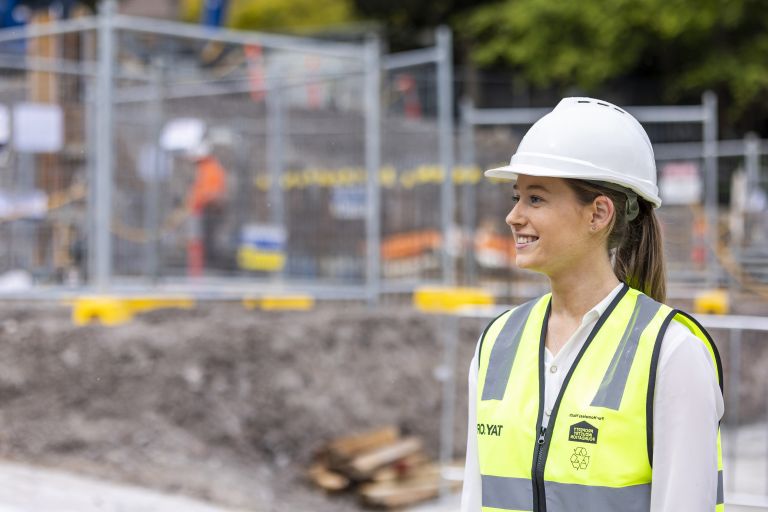Image

Where to start?
Students in NSW have the option of studying Vocational Education and Training (VET) courses at school or through TAFE NSW, private or community training providers. Your school may already offer options to study construction related courses (as early as year 9). Talk to your school careers adviser, they can provide information, guidance and advice to help you make an informed decision about what to do.
VET courses in schools currently provide a pathway into construction and electrotechnology occupations. VET programs, including school-based apprenticeships and traineeships (SBATs) and work placements, are a great way for students to experience work and undertake formal, on the job training as part of their HSC.
School-based apprenticeships and traineeships are a great way to set yourself up for the career you want while you're completing your HSC. They are available to all Year 10, 11 and 12 high school students in NSW and allow students to commence an apprenticeship or complete a traineeship while at school.
Are you aware of the benefits of becoming an apprentice or trainee in the building and construction industry?
- You get paid while you train
- Get quality, hands-on training valued by employers
- Available for anyone who has finished Year 10
- You don’t need your HSC
- You can study full-time or part-time
- Gain a nationally recognised qualification
- Excellent career opportunities
An apprenticeship or traineeship means you learn practical skills with an employer as well as formal learning with an approved provider and get a nationally recognised qualification you can use anywhere.
You may not have much experience when you start an apprenticeship or traineeship, but you will learn skills that set you up for life.
Employers all over Australia hold apprenticeships and traineeships in high regard. They know you’ve completed a structured program designed by industry experts.
Find out more about school-based apprenticeships and traineeships.
The Infrastructure Traineeship is a great pathway for Year 12 school leavers to gain valuable on-the-job infrastructure experience, training and nationally recognised qualifications over two years.
Applicants from diverse backgrounds are encouraged to apply and the program is inclusive of women in metro, rural and regional NSW. The program exceeds existing diversity levels within the sector, with 38.75% of current trainees being female.
Recruitment for the program commences in October each year for program commencement each February.
Infrastructure Trainees begin their career journey straight out of high school in a dynamic and growing industry with many opportunities for progression. At the conclusion of the program Trainees will be established with experience with three organisations and a strong industry network.
Trainees have a host Government agency which could be Transport for NSW, School Infrastructure or Health Infrastructure and others. Across the two year program trainees do a rotation with their host agency, a contractor and consultant. Trainees also study one day per week with TAFE towards a Certificate IV in Business, Project Management Practice and Procurement and Contracting. Trainees also receive micro credentials or training in: First Aid, WHS, Communication in the Workplace and White Card and Mental Health First Aid. During the traineeship they also receive pastoral care, mentoring and literacy and numeracy support.
The Infrastructure Traineeship is an excellent opportunity for high school leavers to get practical experience working on some of the most important infrastructure projects in NSW.
To find out more visit the traineeship website.
With the massive growth in infrastructure in Australia, there are many rewarding careers available. Some roles in the construction industry include:
- Electrician
- Engineering manager
- Civil engineer
- Painter
- Cabinet maker
- Bricklayer
- Scaffolder
- Carpenter
- Plant operators
- Contract administrator
- Building designer
- Project manager
- Project director
- Site supervisor
- Environmental designer and many more!
For more detail on specific occupations, career paths and qualification requirements for roles, head to the Careers NSW website or Women Building Australia.
Image

Find out more about what construction is, what types of roles are available and what can be in it for you.
Videos
Watch school-based apprenticeships and traineeships
Watch What employers want info video
Links
Discover a range of professions in construction, including how much they pay and pathways.
If you are in the junior years of high school
If you are thinking about what to do in your senior high school years
Need more information about SBATs
Information about apprenticeships and traineeships
